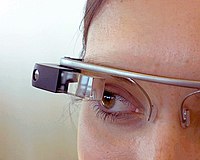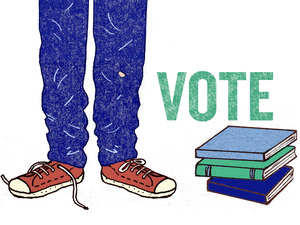Under the Never Sky by Veronica Rossi
Since she'd been on the outside, she'd survived an Aether storm, she'd had a knife held to her throat, and she'd seen men murdered. This was worse.
Exiled from her home, the enclosed city of Reverie, Aria knows her chances of surviving in the outer wasteland - known as The Death Shop - are slim. If the cannibals don't get her, the violent, electrified energy storms will. She's been taught that the very air she breathes can kill her. Then Aria meets an Outsider named Perry. He's wild - a savage - and her only hope of staying alive.
A hunter for his tribe in a merciless landscape, Perry views Aria as sheltered and fragile - everything he would expect from a Dweller. But he needs Aria's help too; she alone holds the key to his redemption. Opposites in nearly every way, Aria and Perry must accept each other to survive. Their unlikely alliance forges a bond that will determine the fate of all who live under the never sky. -Plot summary borrowed from Goodreads
This dystopain-lite novel was ok. If you are looking for a more intense, menacing, or developed dystopia, I would recommend that you keep looking. For a more exciting sci-fi novel with, again, stronger dystopian elemends, I'd really suggest Across the Universe and its sequels. For a survival flavored dystopia, check out After the Snow. Finally, if you like your bleak futures and evil governments softened by a little romance, go for Matched or Delirium.
If it sounds like I'm really underselling this book, it's because I kind of am. Sorry! There were things to like about it- for instance, it had all those elements I mentioned in one handy place (sci-fi, dystopia, romance, survival). I liked the male lead, Perry, and his role in a post-apocalyptic tribe of hunters and gatherers was pretty neat. The action sequences were solid, the roving, killer electrical storms were interesting. The main reason I'm reviewing this one though, is to bring up one of the coolest reasons to read sci-fi in 2012: our technology is developing so quickly, that you can read about some amazing future tech in a book one day, and see a REAL WORLD EXAMPLE OF IT IN THE NEWS THE NEXT DAY.
In Under the Never Sky, Aria and her fellow city dwelllers have an ocular device that connects them to each other in a huge network and enables them to access information, view their surroundings differently, and communicate across large distances. Kind of like, oh, I don't know, the device worn by Steve Mann, the "father of wearable computing." He made the news in July when several workers at a French McDonalds " took exception to his "Digital Eye Glass" device and attempted to forcibly remove it from his head." This has been referred to in the news as possibly the "world's first cybernetic hate crime." Welcome to the future, people.
Oh, and if the idea of a wearable computer on your face appeals to you (and honestly, why wouldn't it? Think of the reading you could do! The things you could Google while walking through a museum! You could play Angry Birds with your eyes!! Just don't go to French fast food establishments), there's good news! Google is well on its way to completing on of its many (somewhat terrifying) endeavors: Project Glass.
This device runs Android, the same operating system used by millions of smart phones already. I don't know about you, but I'm a little excited for our rapidly approaching/kind of already here sci-fi future.
Since she'd been on the outside, she'd survived an Aether storm, she'd had a knife held to her throat, and she'd seen men murdered. This was worse.
Exiled from her home, the enclosed city of Reverie, Aria knows her chances of surviving in the outer wasteland - known as The Death Shop - are slim. If the cannibals don't get her, the violent, electrified energy storms will. She's been taught that the very air she breathes can kill her. Then Aria meets an Outsider named Perry. He's wild - a savage - and her only hope of staying alive.
A hunter for his tribe in a merciless landscape, Perry views Aria as sheltered and fragile - everything he would expect from a Dweller. But he needs Aria's help too; she alone holds the key to his redemption. Opposites in nearly every way, Aria and Perry must accept each other to survive. Their unlikely alliance forges a bond that will determine the fate of all who live under the never sky. -Plot summary borrowed from Goodreads
This dystopain-lite novel was ok. If you are looking for a more intense, menacing, or developed dystopia, I would recommend that you keep looking. For a more exciting sci-fi novel with, again, stronger dystopian elemends, I'd really suggest Across the Universe and its sequels. For a survival flavored dystopia, check out After the Snow. Finally, if you like your bleak futures and evil governments softened by a little romance, go for Matched or Delirium.
If it sounds like I'm really underselling this book, it's because I kind of am. Sorry! There were things to like about it- for instance, it had all those elements I mentioned in one handy place (sci-fi, dystopia, romance, survival). I liked the male lead, Perry, and his role in a post-apocalyptic tribe of hunters and gatherers was pretty neat. The action sequences were solid, the roving, killer electrical storms were interesting. The main reason I'm reviewing this one though, is to bring up one of the coolest reasons to read sci-fi in 2012: our technology is developing so quickly, that you can read about some amazing future tech in a book one day, and see a REAL WORLD EXAMPLE OF IT IN THE NEWS THE NEXT DAY.
In Under the Never Sky, Aria and her fellow city dwelllers have an ocular device that connects them to each other in a huge network and enables them to access information, view their surroundings differently, and communicate across large distances. Kind of like, oh, I don't know, the device worn by Steve Mann, the "father of wearable computing." He made the news in July when several workers at a French McDonalds " took exception to his "Digital Eye Glass" device and attempted to forcibly remove it from his head." This has been referred to in the news as possibly the "world's first cybernetic hate crime." Welcome to the future, people.
This device runs Android, the same operating system used by millions of smart phones already. I don't know about you, but I'm a little excited for our rapidly approaching/kind of already here sci-fi future.









